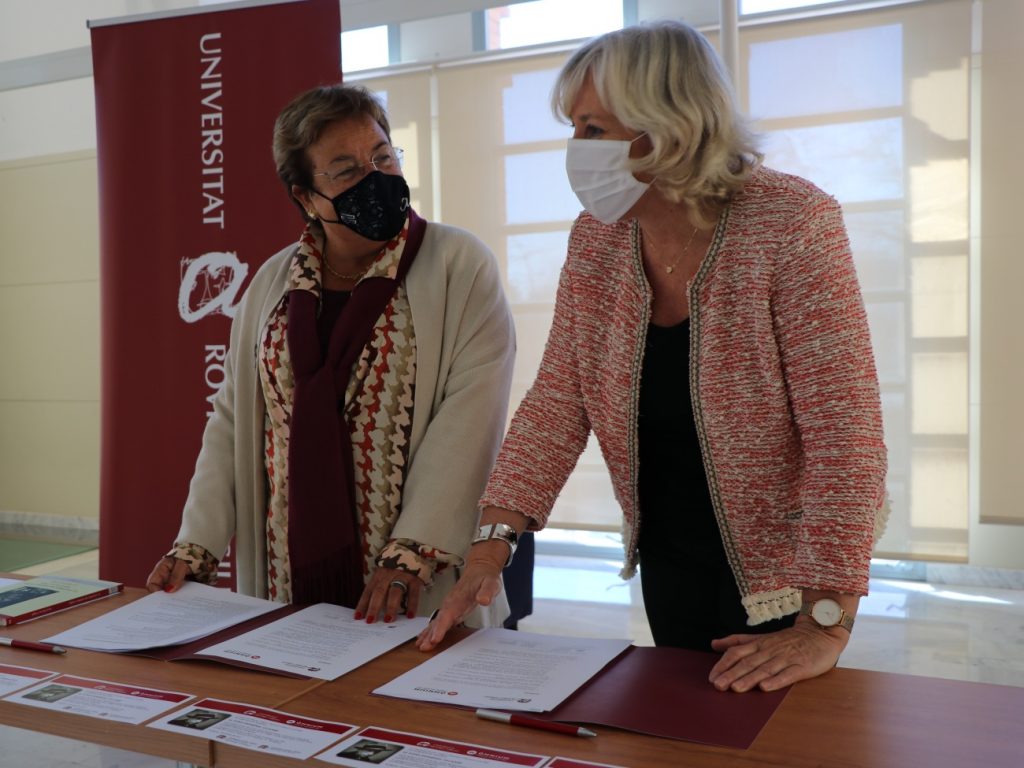Press notes 19/11/2021
The Domènec Guansé collection is now available at the CRAI
Òmnium Cultural del Tarragonès has donated a book collection owned by the critic and journalist Domènec Guansé to the URV. The collection consists of about 800 documents from 1870 to 1978 and many of them have dedications by different authors, such as Prudenci and Aurora Bertrana, Carles Soldevila, or JV Foix.
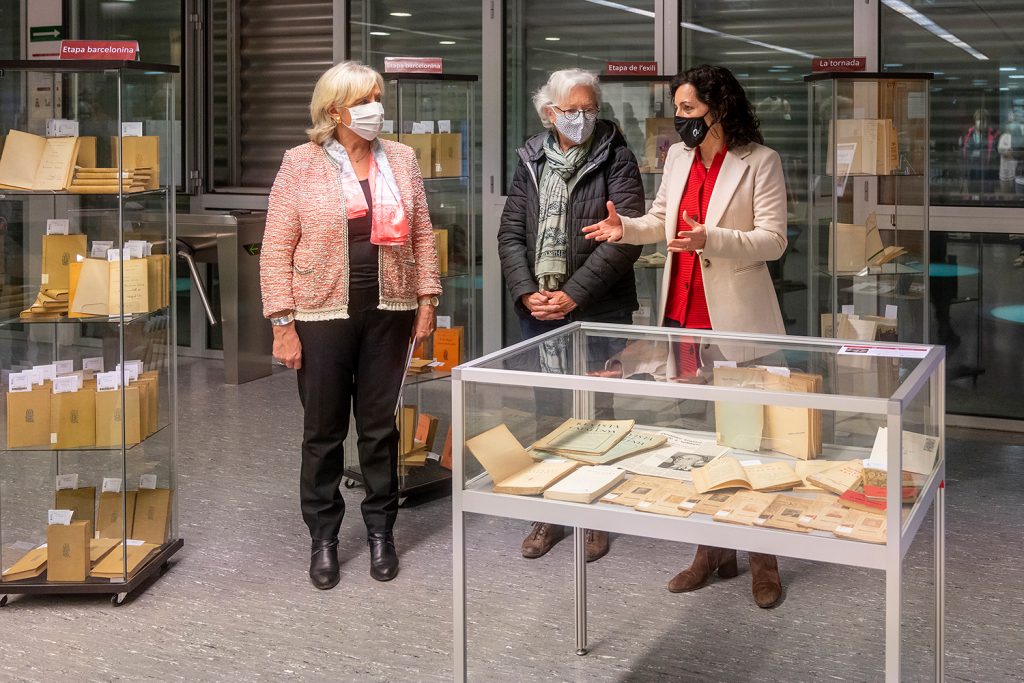
Òmnium Cultural del Tarragonès has donated a book collection owned by the critic and journalist Domènec Guansé to the URV. The collection consists of about 800 documents from 1870 to 1978 and many of them have dedications by different authors, such as Prudenci and Aurora Bertrana, Carles Soldevila, or JV Foix.
The collection, which belonged to the writer, journalist, and translator Domènec Guansé, can be consulted at the CRAI Catalunya of the URV thanks to Òmnium Cultural del Tarragonès, who has donated it to the URV. The collection will be exhibited to the public until December 3 and it will then be available for consultation, like the rest of the collections that have been donated or bequeathed to the URV.
The new collection consists of 784 documents published between 1870 and 1978 and contains all kinds of genres: translations of European classics into Catalan, Catalan poetry, prose, works published by different authors during the Chilean and Argentine exile, and theater. It is worth mentioning that a large part of the collection is dedicated to Guansé by various authors. Thus, there are dedications by writers such as Agustí Esclasans, Prudenci and Aurora Bertrana, Carles Soldevila, Maria Teresa Vernet, and JV Foix, among others. In this way, we can track Catalan literature and the history of the country.
Domènec Guansé was born in Tarragona in 1894 and was a disciple of Antoni Rovira i Virgili. He became a self-taught man and worked for the Diari de Tarragona and for the journal La Publicitat, where he did theater criticism. In 1924, he moved to Barcelona, where he began a period of creation, criticism, and translation until 1939 when he went into exile in France. From exile, he continued to publish and participate in cultural activities and organizations. In 1963, he returned to Barcelona and resumed his literary and publishing life until his death in February 1978.
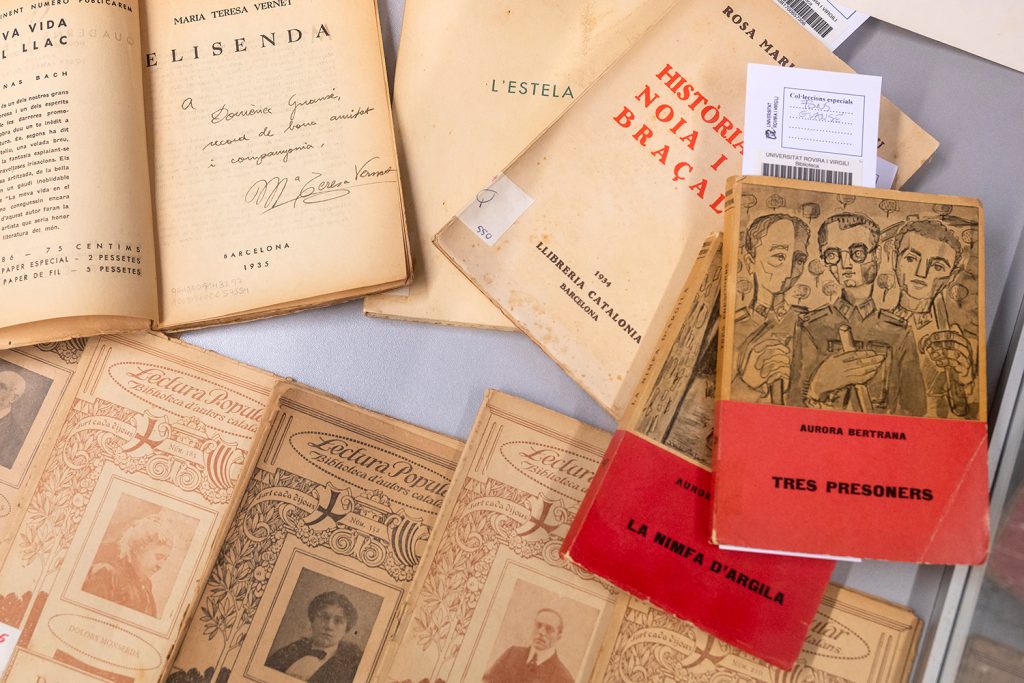
The donation event took place on Thursday, 18 November. In this event, the president of Òmnium Cultural del Tarragonès, Rosa Maria Codines, explained that the donation coincides with the celebration of the 50th anniversary of the organization for the defense of the Catalan language and culture, a moment they have
used to highlight the collection they owned. The CRAI of the URV has contributed to the work of valuing, inventorying, and cataloging the Domènec Guansé collection. Thanks to this work, the public can consult the collection at CRAI campus Catalunya. In addition, the CRAI has created a digital guide with additional information on the collection.
The collection conveys the life and professional journey of Domènec Guansé with three very marked stages, which can be traced through the exhibition at the CRAI. The first stage is his native city (1894- 1924) and his readings; the second, his life in Barcelona (1924-1939), friendships, and profession; his exile in France (on 25 January 1939 he arrived in Perpignan) and Chile (1940-1963), and, finally, his return to Catalonia and Barcelona (1963-1978). In this collection, there are some of the best-known protagonists of Catalan literature from the 1920s to the Transition. Thus, through the Guansé collection, one can distinguish the different sides of Guansé: the literary-critical Guansé, the translator Guansé, and Guansé and his relationships through dedicated books.
At the exhibition opening, the Vice-Rector for Students and Employability, Maria Bonet, emphasized the importance of the collection, highlighted the figure of Domènec Guansé, and vindicated literature as a space for personal and intellectual growth. For Maria Bonet, Guansé embodies a generation of men and women who saw their lives disrupted by the war. A generation who was part of an intellectual group “that was appeased and which, first from exile and then from the return, made possible the survival of the Catalan language”.
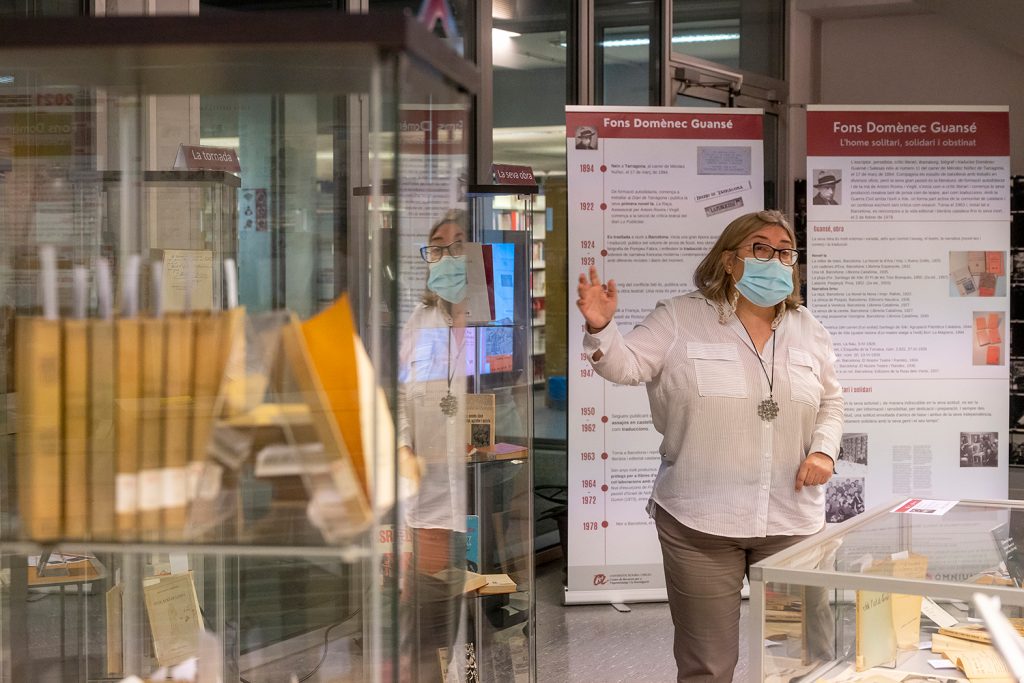
From now on, this collection will become part of the collection of the CRAI campus Catalunya, which includes, among others, the legacy of Vidal-Capmany and Teresa Rovira i Comas, which contains documents dedicated by Domènec Guansé. In this way, “we are building a very outstanding library of Catalan literature, open to students, researchers, and all citizens”, said Bonet.
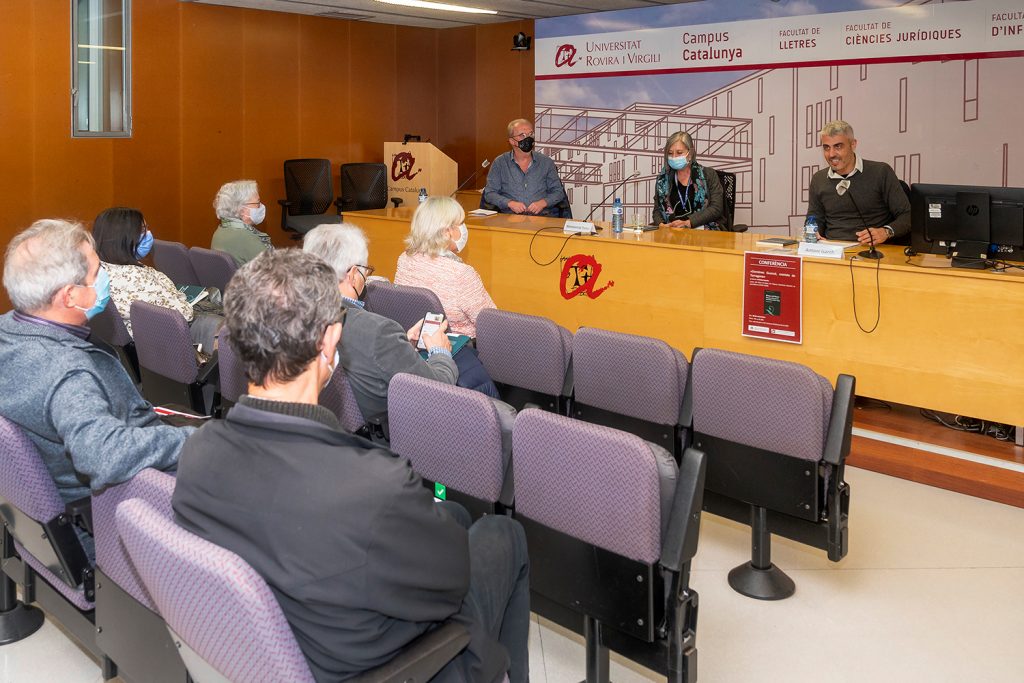
The book El batec de l’època. Domènec Guansé i el periodisme (1918-1936) by Antoni Isarch was published by URV Publications in the Literary Heritage collection and directed by Magí Sunyer, professor of the Department of Catalan Philology at the URV. The volume, which follows the press production of Guansé grown in Tarragona and Barcelona, was presented as a part of the donation of the Domènec Guansé collection.
In addition, Montserrat Corretger, professor of the Department of Catalan Philology of the URV, published the book Domènec Guansé, crític i novel·lista: entre l’exili i el retorn, in which literary and journalistic activity and artistic and political thought are analyzed. This book was published with Publicacions de l’Abadia de Montserrat.
